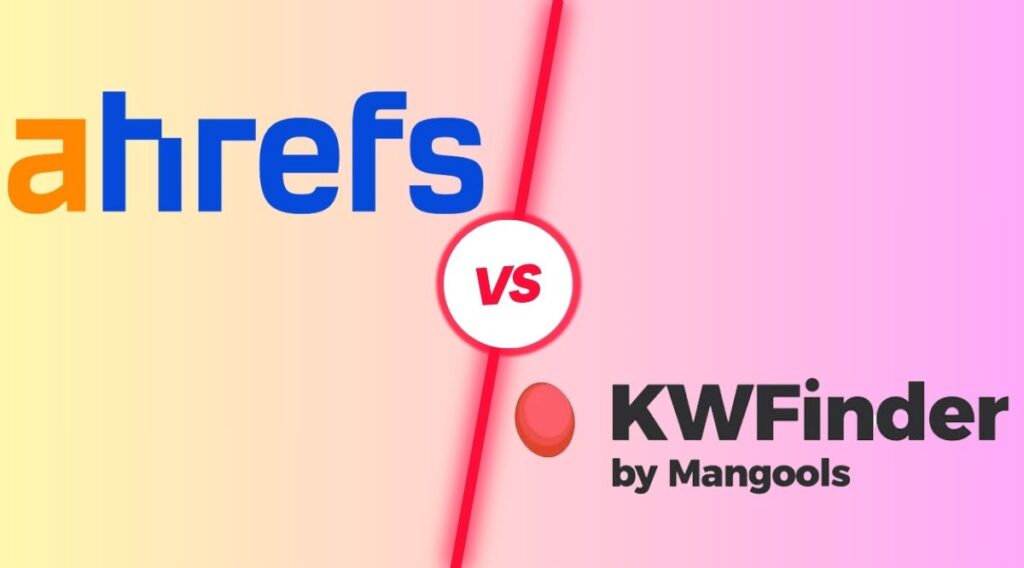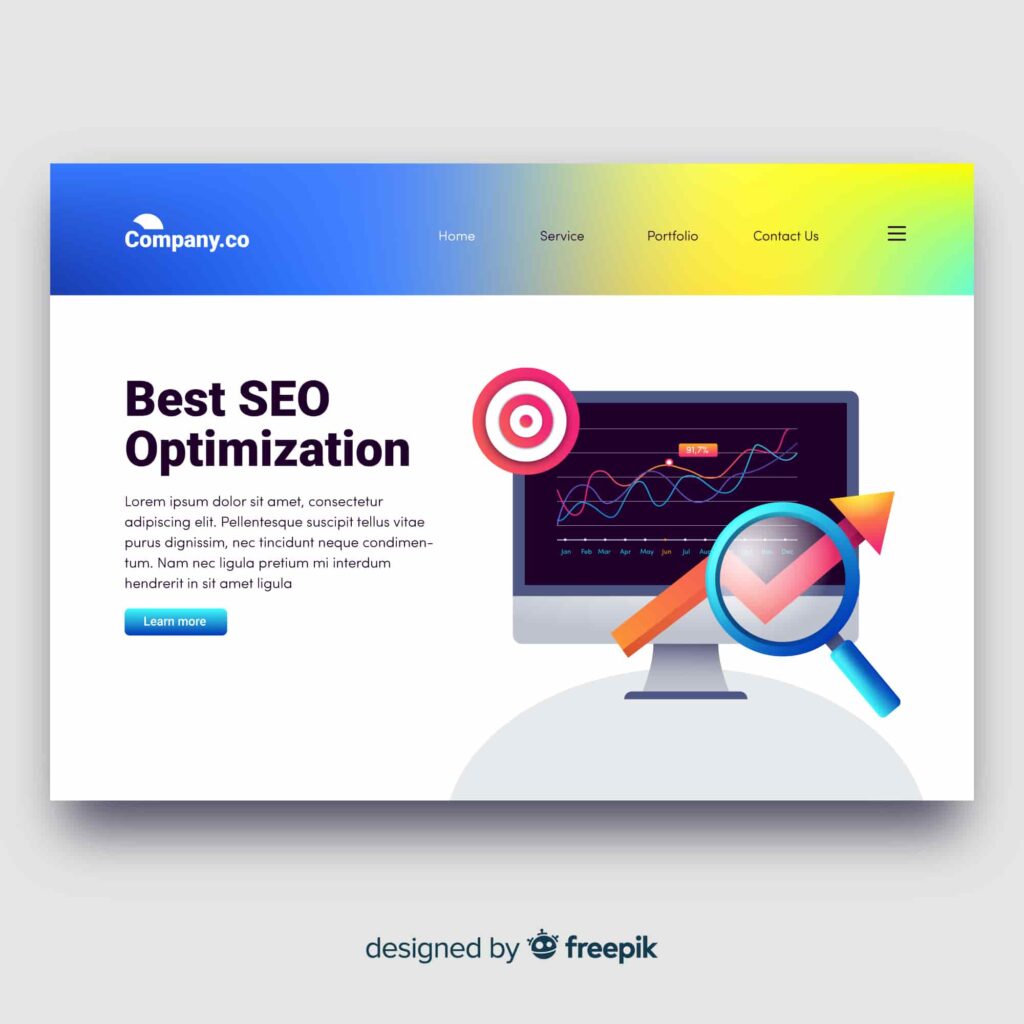Effective communication is essential in today’s dynamic business environment to grab your audience’s attention and propel Success. Small businesses, in particular, need to make every word count, as their messages play a pivotal role in building brand identity and attracting customers. This article explores the art and science of copywriting for small businesses, providing insights and strategies to create communications that are appealing and resonant with your intended audience.
What is Copywriting for Small Business?
The art and science of writing advertising or marketing content is known as Copywriting for Small Business. Copywriters frequently work in advertising agencies, marketing departments, or as freelancers, using their writing abilities to create appealing and convincing content that resonates with the intended audience. Best copywriting for small businesses is essential for effective marketing and has a significant impact on advertising campaign success.
Types of Copywriting for Small Business
- Print Copywriting: This includes writing copy for traditional printed materials such as magazine advertisements, brochures, flyers, and posters.
- Digital Copywriting: Focuses on creating content for online platforms, including websites, blogs, social media, email campaigns, and digital ads.
- Direct Response Copywriting: This type of copywriting seeks to elicit an immediate response or action from the audience and is commonly employed in sales letters, emails, and online advertisements.
- SEO copywriting: Optimizing content for search engines leads to greater rankings and increased visibility.
- Social Media Copywriting: Tailored for social media platforms, emphasizing brevity and engagement to capture the attention of users.
- Creative Copywriting: Used in branding and advertising to convey a brand’s personality and create a memorable and unique voice.
- Technical Copywriting: Writing content that explains complicated technical topics or goods straightforwardly and understandably.
- Promotional Copywriting: Focuses on promoting a product, service, or event, often using persuasive language to encourage customer action.
- Storytelling Copywriting: Utilizes narrative techniques to create a compelling and engaging story around a brand, product, or service.
- Educational Copywriting: Aims to inform and educate the audience about a particular topic, often used in content marketing to build authority and build trust.
- Nonprofit Copywriting: Tailored for fundraising and awareness campaigns, aiming to inspire emotions and action for a social or charitable cause.
- B2B (Business-to-Business) Copywriting: This company focuses on serving the specific needs and addressing the challenges of other businesses.
- B2C (Business-to-Consumer) Copywriting: Targets consumers and is designed to appeal to the emotions, desires, and needs of individual customers.
Why is copywriting important for small businesses?
Copywriting for Small Business is particularly crucial for small businesses for several reasons:

Effective Communication
Effective communication is crucial for small businesses, especially when resources are limited. The use of well-crafted copy is instrumental in conveying the intended communication to the target audience, ensuring clarity and resonance. It is essential in articulating the value proposition of the product or service being offered.
Building Credibility and Trust
Building trust and credibility is another crucial aspect of effective communication. Through proficient copywriting, small businesses can present information professionally and compellingly, instilling confidence in potential customers. This trust is essential for both acquiring and retaining customers over the long term.
Differentiation
In competitive markets, differentiation is vital for small businesses. Copywriting for Small Businesses allows them to highlight what distinguishes their products or services, letting them stand out from the competition. By developing a well-defined brand voice and message, small businesses can create a distinct identity in the minds of consumers.
Conversion Optimization
Copywriting for Small Businesses is integral to the conversion process. Crafting persuasive and well-optimized copy can transform potential customers into loyal ones. From websites to social media, emails to advertisements, it’s essential to captivate their attention and inspire them to take action. A clear call to action in the copy directs customers on what steps to take next.
Cost-Effective Marketing
For small firms with limited marketing funds, great copywriting is a valuable and cost-effective strategy. Instead of investing heavily in elaborate campaigns, well-crafted copy enables firms to convey their message across various channels without requiring substantial financial resources.
Online Presence and SEO
In the digital era, establishing a solid online presence is crucial for small businesses. Creating captivating content for websites, blogs, and social media platforms is pivotal. Optimized content improves search engine rankings, allowing potential clients to find the business online.
Engagement and Relationship Building
Engaging and relatable copy is instrumental in building connections with the target audience. Small businesses can leverage storytelling and personalized messaging to create emotional bonds, transforming one-time customers into loyal advocates. It fosters a sense of connection and loyalty, which is essential for long-term Success.
Adaptability
Small businesses often need to respond swiftly to market changes or trends. Copywriting for Small Businesses provides the flexibility to adapt quickly by updating marketing materials, promotions, or messaging. This adaptability ensures that the business stays relevant and appealing to its audience, even in dynamic and evolving market conditions.
How copywriting works
Understanding the Audience
This initial step involves delving deep into the characteristics and preferences of the group of people for whom the marketing or advertising message is intended. Copywriters aim to comprehend the audience’s needs, interests, and challenges (often referred to as pain points). This knowledge provides the groundwork for constructing a message that not only aligns with the audience’s values but also addresses their concerns or desires.
Research
Once the target audience is defined, copywriters engage in thorough research. It involves collecting information about the product, service, or brand being promoted. Copywriters seek to identify what makes the offering unique or attractive to the audience. Additionally, they strive to understand the broader value proposition, which encompasses the overall benefits and advantages of the product or service.
Crafting the Message
Armed with insights gathered from audience understanding and research, copywriters proceed to formulate a message. This message is carefully constructed to be not only persuasive but also emotionally resonant. The goal is to establish a connection with the audience on a personal level. Furthermore, the message is designed to convincingly convey a specific call to action, encouraging the audience to take a desired step, such as making a purchase or subscribing to a service.
Writing the Copy
This stage involves the actual creation of the written content for the marketing or advertising materials. Copywriters generate different elements, including taglines, headlines, body copy (the main text), and other content pieces. The primary objective is to produce content that not only grabs the audience’s attention but also appropriately communicates the intended message clearly and engagingly. The choice of words, tone, and overall style plays a crucial role in maintaining and capturing the audience’s interest.
Editing and Revising
Once the initial draft of the copy is written, copywriters move on to the editing and revising phase. During this step, they carefully review the content to ensure clarity, accuracy, and effectiveness. The goal is to refine the copy, address any potential issues, improve the flow of the message, and polish the language. This process helps guarantee that the final copy is of high quality and aligns seamlessly with the marketing objectives.
Testing and Optimization
In some instances, especially in digital marketing, the copy may undergo testing to assess its performance. A/B testing is a standard method where different versions of the copy are presented to various segments of the audience. By analyzing the performance metrics, such as conversion or rates click-through rates, copywriters can determine which version is more effective. This valuable feedback allows for optimization, enabling the copy to be fine-tuned for maximum impact.
Finalizing and Publishing
After the copy has been reviewed, refined, and, if necessary, optimized through testing, it is ready for finalization. The approved and polished copy is then published across various marketing channels. The finalization and publishing stage marks the culmination of the Copywriting for Small Business process, making the crafted message accessible to the intended audience.
Elements of copywriting for small business
- Know your audience and customize your message according to their requirements.
- Create a compelling headline and clearly communicate the value of your product or service.
- Connect with emotions, keep the message clear and straightforward, and include a solid call to action.
- Use storytelling, highlight features and benefits, and focus on the customer.
- Emphasize your unique selling proposition and have testimonials for credibility.
- Format the content for easy readability, maintain consistency with brand voice, and create urgency or scarcity. Lastly, edit and proofread for professionalism.
Strategies of copywriting for small business
Define Your Goals
Clearly articulate the objectives of your Copywriting for Small Business efforts. Whether you aim to generate leads, boost sales, or increase brand awareness, having well-defined goals guides your overall strategy. It helps in aligning your messaging and content with the specific outcomes you want to achieve.
Know Your Audience
Knowing the demographics, pain points, and interests of your target audience is crucial. This knowledge allows you to create tailored copy that resonates with their needs and preferences. The more you understand your audience, the better you can address their concerns and capture their attention.
Craft Compelling Headlines
Create attention-grabbing headlines that spark interest and entice readers to delve into the content. An engaging title creates the first impression and establishes the tone for the entire article. It should be intriguing enough to make readers want to explore further.
Focus on Benefits
Instead of solely listing features, emphasize the benefits of your product or service. Clearly explain how your offering solves problems or fulfills the needs of your customers. Understanding and highlighting the value your product brings help in making a persuasive case for your audience.
Utilize Storytelling
Engage your audience emotionally by incorporating storytelling into your copy. By building a relationship with your audience, narratives help your brand become more memorable and relatable. Sharing stories helps in building a deeper relationship with potential customers who can better connect with the human aspects of your brand.
Establish a Unique Selling Proposition (USP)
Clearly state what makes your company unique from the competition. Your product or service’s unique selling proposition (USP) is what sets it apart from the competition. Emphasizing your USP in your Copywriting for Small Businesses gives buyers a compelling incentive to choose your products over others on the market.
Create a Sense of Urgency
Act now! Make use of words that make your audience feel compelled to act right now. Incorporate elements like limited-time offers, exclusive deals, or promotions to create a feeling that there is a time-sensitive opportunity. This urgency encourages customers to act promptly, helping to drive conversions and sales.
Build Trust with Social Proof
Integrate social proof into your copy by showcasing customer testimonials, reviews, case studies, or endorsements. Social proof serves to build trust and credibility by validating your claims with real experiences from others. This form of material can impact purchasing decisions by demonstrating that others have had favorable interactions with your brand.
Use Clear Calls to Action (CTAs)
Instruct your audience clearly on the action you want them to take. Whether it’s making a purchase, subscribing, or contacting you, a solid and clear Call to Action (CTA) is essential. It guides your audience on the next steps and contributes to achieving your desired outcomes.
Employ A/B Testing
Testing two versions of content via A/B testing can determine the better-performing material. This iterative method helps you fine-tune your messaging for peak performance, ensuring that you’re employing the most effective copy for your intended audience.
Mobile Optimization
Mobile devices grow, so it is critical to ensure that your content is mobile-friendly. It involves using short paragraphs, creating scannable content, and adopting a mobile-friendly design. Mobile optimization enhances the user experience for individuals accessing your content on smartphones or tablets.
How can a professional copywriter help small businesses?
Content Creation and Management
A professional copywriter is capable of handling the creation and management of your written content, including tasks such as writing blog posts, crafting marketing emails, and developing website copy. By taking care of these content needs, the copywriter allows business owners to focus on other aspects of their operations without the burden of consistently generating written material.
Benefit: This service frees up valuable time for small business owners, enabling them to concentrate on core business activities rather than spend hours creating content.
Idea Generation
Copywriters bring a fresh and creative perspective to your content. They can generate new ideas for topics, approaches, and presentation styles. Furthermore, they offer direction on how to reach your target audience with your message in an effective manner, guaranteeing that your writing is exciting and appeals to readers.
Benefit: The expertise of a copywriter helps in overcoming creative blocks, ensuring that your content remains interesting, relevant, and aligned with your business goals.
SEO Optimization
Copywriters are skilled in optimizing content for search engines (SEO). It entails researching relevant keywords, strategically incorporating them into your material, and writing well-structured, search engine-friendly copy. The copywriter aims to enhance your website’s visibility on SERP and boost the volume of natural traffic it attracts through this strategy.
Benefit SEO optimization is crucial for increasing your online presence. A copywriter’s expertise in this area can lead to higher search engine rankings, driving more visitors to your website and potentially expanding your customer base.
Golden rules of copywriting for small business
Embrace the Gentle Approach
To write captivating content, avoid the hard sell and instead highlight the value you bring, how you help your customers, and the benefits of your products or services.
By adopting this approach, you can communicate your message in a helpful and welcoming manner.
Craft Your Key Pages with Care
Home Page
Consider your homepage as the welcoming front door to your site, akin to a table of contents. To guide visitors on how you can assist them, ensure your home page incorporates
- Unique Selling Proposition (USP): Clearly articulate what sets you apart.
- Overview of Services/Categories: Provide a brief glimpse of your primary services or product categories with relevant links.
- Introduction to Your Identity: Share who you are, what you do, and your mission, linking back to your About page.
- Testimonials/Reviews: Display positive feedback to establish trust.
- Call to Action (CTA): Direct visitors with links to your shop, services, and email list.
About Page
As the second most-visited page, the About page holds significant power. Structure it effectively by
- Sharing Your Story: Discuss the origin of your business and your entrepreneurial journey.
- Declaring Your Mission, Vision, and Values: Connect with your audience by expressing your principles and aspirations.
- Highlighting Problem-Solving Abilities: Convince visitors that you can address their concerns effectively.
- Social Media Integration: Facilitate online connections by featuring your main social media channels.
- Encouraging Email Subscription: Incentivize subscription with discounts or free resources.
Services/Collections Page
Tailor a page that gives an overview of your main products or services. Include
- Services Overview: Incorporate relevant keywords and elucidate the benefits for your ideal customer.
- Product Collections: Optimize for SEO with a well-crafted copy to complement product images.
Decode Google’s Desires
While Google’s algorithm remains a mystery, certain Copywriting for Small Business elements impacts ranking and SEO.
- Word Count: Aim for over 300 words to increase the likelihood of higher ranking and perceived quality.
- Relevant Keywords: Using keywords effectively is crucial for optimizing your website’s search engine rankings. You have keywords in your title tags, meta descriptions, headers, subheadings, and throughout your text.
- Page Structure: Organize content logically to enhance visibility in search results, potentially securing a featured snippet.
People Buy from People
In the realm of website development and optimization, it’s crucial to remember that while Google plays a pivotal role, it’s the human connection that seals the deal. Rather than stuffing your site with keywords, focus on crafting compelling, natural, and conversational copy. Balancing SEO with engaging content enhances conversions and encourages action, making your site not just searchable but genuinely appealing to your audience.
Mistakes of copywriting for small business
- Ignoring Your Audience
- Overlooking a Compelling Headline
- Being Overly Complex
- Neglecting Proofreading
- Lack of a Clear Call-to-Action (CTA)
- Ignoring the Power of Storytelling
- Not Testing and Optimizing
- Focusing Solely on Features
- Ignoring SEO Best Practices
- Being Too Salesy
How do you hire copywriting services?
Determine what kind of copywriting services you need, such as website content, marketing brochures, product descriptions, or social media postings. Look for copywriters who specialize in the type of content you need. You can search online, ask for referrals, or use freelance platforms to find experienced copywriters. Ask potential copywriters to provide samples of their work or a portfolio that showcases their writing style and expertise.
When hiring a copywriter, it’s important to request references from past clients to assess their professionalism, communication skills, and ability to meet deadlines. Please communicate with the copywriter about their rates, payment terms, and any additional fees for revisions or rush orders. Once you’ve selected a copywriter, please provide them with a creative brief that includes the target audience, outline your brand, key messages, and any specific requirements for the project.
Clearly communicate your expectations regarding timelines, revisions, and deliverables to ensure a smooth working relationship. After receiving the initial draft
- Review the copy carefully and provide constructive feedback.
- Work with the copywriter to make any necessary revisions.
- Once you’re satisfied with the copy, sign a contract or agreement outlining the range of work, payment terms, and other essential elements.
- Maintain an open channel of communication with the copywriter throughout the project to address any queries or concerns that emerge.
Tools of copywriting for small business
Grammar Resources
Grammarly
Grammarly is a widely used writing assistant tool designed to enhance your written communication. It goes beyond basic grammar and spell-check functions. Grammarly provides real-time suggestions for improving sentence structure, word choice, punctuation, and style. It can be turned into various platforms, including web browsers and word processors, offering users assistance as they write emails, articles, or any other content.
Hemingway Editor
The Hemingway Editor is a writing tool inspired by the clear and concise writing style of Ernest Hemingway. Its primary focus is on improving the clarity and readability of your text. The editor highlights complex sentences, adverbs, and instances of passive voice, aiming to make your writing more straightforward and accessible.
Keyword Research Resources
Google Keyword Planner
Google Keyword Planner is a tool given by Google that assists businesses in finding relevant keywords for their online content. It is primarily designed for use in pay-per-click (PPC) advertising campaigns, but it is also valuable for organic content creation. The tool provides information about search volume, allowing you to observe how often specific keywords are searched on Google.
Ubersuggest
Ubersuggest is a keyword research tool that goes beyond just providing keywords. It offers insights into keyword ideas, search volume, and competition levels. Ubersuggest can help businesses discover not only primary keywords but also long-tail keywords — more specific and less competitive phrases that can be valuable for niche targeting.
SEMrush
SEMrush is a powerful digital marketing tool that encompasses various features, including robust keyword research capabilities. SEMrush helps businesses identify relevant keywords by providing insights into search volume, competition, and trends. It allows you to study your competitors’ keyword tactics and identify fresh prospects. SEMrush extends beyond keyword research to include tools like site auditing, backlink analysis, and more, making it a comprehensive tool for optimizing your entire online presence.
General Writing Resources
Copyblogger
Copyblogger is a platform that provides valuable resources and insights into content marketing, Copywriting for Small Businesses, and digital marketing. It serves as an educational hub covering a wide range of topics related to writing for online platforms. Copyblogger offers articles, courses, and tools to help individuals and businesses enhance their writing skills, create compelling content, and effectively engage their target audience in the digital landscape.
HubSpot Blog
HubSpot’s blog is a rich source of information covering inbound marketing, sales, and content creation. It serves as a comprehensive resource for marketers and business professionals looking to understand and excel in various aspects of the customer journey. HubSpot’s blog content spans topics such as lead generation, customer retention, and writing for different stages of the sales funnel.
Copyhackers
Copyhackers provides a range of tools, including a Copywriting for Small Business Masterclass, aimed at enhancing the copywriting abilities of individuals and businesses. The Copywriting for Small Business Masterclass focuses on fundamental principles and strategies tailored to improving writing for the purpose of driving conversions. This resource is valuable for anyone seeking to craft compelling and impactful copy that motivates their audience. To take proper actions, such as subscribing to a newsletter or engaging in other desired behaviors. Check out Copyhackers for more information.
Conclusion
The conclusion emphasizes the importance of mastering the art of copywriting for small businesses in the competitive digital landscape. It highlights the significance of crafting compelling headlines and staying updated with emerging trends as essential components of effective Copywriting for Small Businesses. Small businesses can thrive digitally with effective copywriting.
Frequently Asked Questions (FAQs)
What is the importance of Copywriting for Small Businesses?
Copywriting for small businesses is crucial as it helps create compelling and persuasive content that engages potential customers, communicates brand values, and ultimately drives conversions. A well-written copy can differentiate your business in a competitive market and create a strong connection with your target audience. A well-written copy can differentiate your business in a competitive market and create a strong connection with your target audience. A well-written copy can differentiate your business in a competitive market and make a strong connection with your target audience.
How can I improve the effectiveness of my website copy?
- To enhance your website copy
- Focus on understanding your target audience, highlighting unique selling points, and incorporating a clear call to action.
- Use concise and persuasive language, address customer pain points, and ensure your content is easily scannable.
- Regularly update and test your copy to optimize for conversion.
What is the ideal length for marketing copy?
There’s no one-size-fits-all answer, but compelling marketing copy is generally concise, engaging, and tailored to the platform. For web content, aim for clarity in a few sentences or paragraphs. Email copy can vary but should be concise, while longer-form content like blog posts should provide in-depth information without losing the reader’s interest.
How do I maintain a consistent brand voice across different platforms?
Consistency is necessary for creating a solid brand identity. Create a brand style guide that describes your brand’s voice, tone, and essential message. Ensure all team members involved in content creation are familiar with this guide. Regularly review and update the guide as your business evolves to maintain a cohesive brand image.
What role does storytelling play in effective Copywriting for Small Businesses?
Storytelling is a practical Copywriting for Small Business approach because it aids in creating an emotional bond between you and your intended audience. Share compelling stories that resonate with your brand values and customer experiences. Craft narratives that illustrate the benefits of your product or service, making your brand more relatable and memorable to potential customers.


































